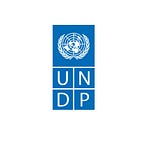Improving social contract through the rehabilitation of formal learning Centers
The Government Day Secondary School in Gulak, Adamawa State was one of the many learning centres that had been destroyed by insurgent attacks from 2014 to 2016. The impact of its destruction has resonated throughout, as students and teachers were forced to stay at home while conditions remained unsafe. Even when studies resumed, students had to endure learning in an inconducive environment not only because of the physical destruction to the school itself but also because of the trauma and psychological impact it left on the community.
During the two-year period that the town was controlled by insurgents, nearly all public service infrastructure was looted and destroyed including schools, hospitals, local government offices and police barracks. Even the infrastructure that did remain, continued to worsen under harsh weather conditions and recurrent looting, leaving inadequate access to public services. This vulnerable condition has further been exacerbated by the absence of electricity, water, personnel, equipment, medicines, furniture, and other necessary supplies.
“Our school was on holiday break, when we received news that insurgents came into our community at night and destroyed some of our key infrastructure, including my school” said Isgna, a 17-year-old student at the Government Day Secondary School. “When some of my classmates and I decided to go and see the damage for ourselves, we saw that everything was burnt to the ground. Our one consolation was that no life was lost in the process” she reflected.
Communities rely on schools for more than education. Without urgent action, significant disruptions, like those caused by the insurgency, have had devastating consequences — undermining community security, welfare, jeopardizing security gains made by the Government of Nigeria against insurgency, pushing them further into vicious chain of depravation and extremism in a highly volatile region.
As part of its commitment to rapidly re-establish basic services, the United Nations Development Programme (UNDP), in collaboration with Adamawa State Government, has initiated stabilization interventions aimed at rehabilitating essential infrastructure under the Regional Stabilization Facility (RSF) project. One of which included the rehabilitation of damaged secondary school in Gulak community, Madagali Local Government Area (LGA). As a result of the rehabilitation, the pupils of Gulak’s Government Day Secondary School now attend a newly refurbished and functional learning environment which includes: seven (7) blocks of classrooms, one Admin Block, one Computer Centre, one Introtech Lab and two newly constructed toilets.
The improved facilities now provide a safe and conducive learning environment that is needed for quality education, “With the improvements made to our school, my hope of advancing my education and becoming a computer scientist is back again. I am motivated to study harder and excel because I know how important education is in order to have a meaningful career and be able to provide for my family” added Isnga.
Mr. Emma, the principal of the school, reiterated the importance of having a conducive learning environment, “I appreciate the efforts of the State Government with support from UNDP in rehabilitating our school, as having a safe and well equipped learning space cannot be overemphasized as it has shown to be responsible for improved productivity in the lives of our students and the community. With these new improvements after the destruction, the students are eager to come back to school and we have started to welcome many new students.”
Established in 2019, the Regional Stabilization Facility for Lake Chad — Nigeria window, one of the four national windows covering the Lake Chad basin, is a rapid response programme towards the immediate stabilization of the region. Through this programme, UNDP in close collaboration with the state governments in north east Nigeria, is supporting efforts aimed at consolidating the gains made by security and resuscitation of stability in conflict-affected communities by extending state presence and establishing minimum security conditions, restoring essential and basic services and fostering livelihood opportunities. The Facility is funded by Germany, European Union, United Kingdom and the Netherlands.
Story and photos by Amalachukwu Ibeneme, Edited by Alison Clement
